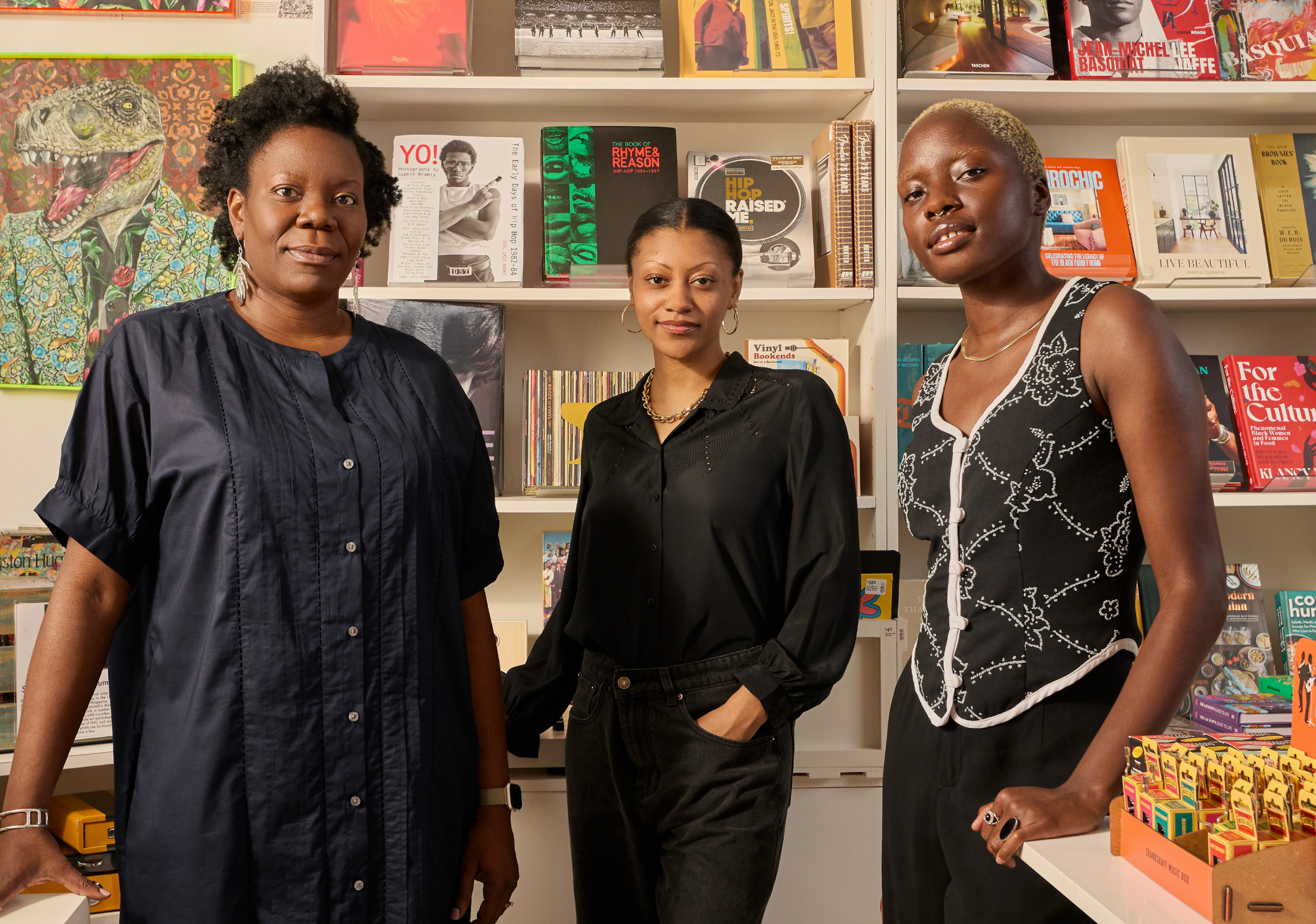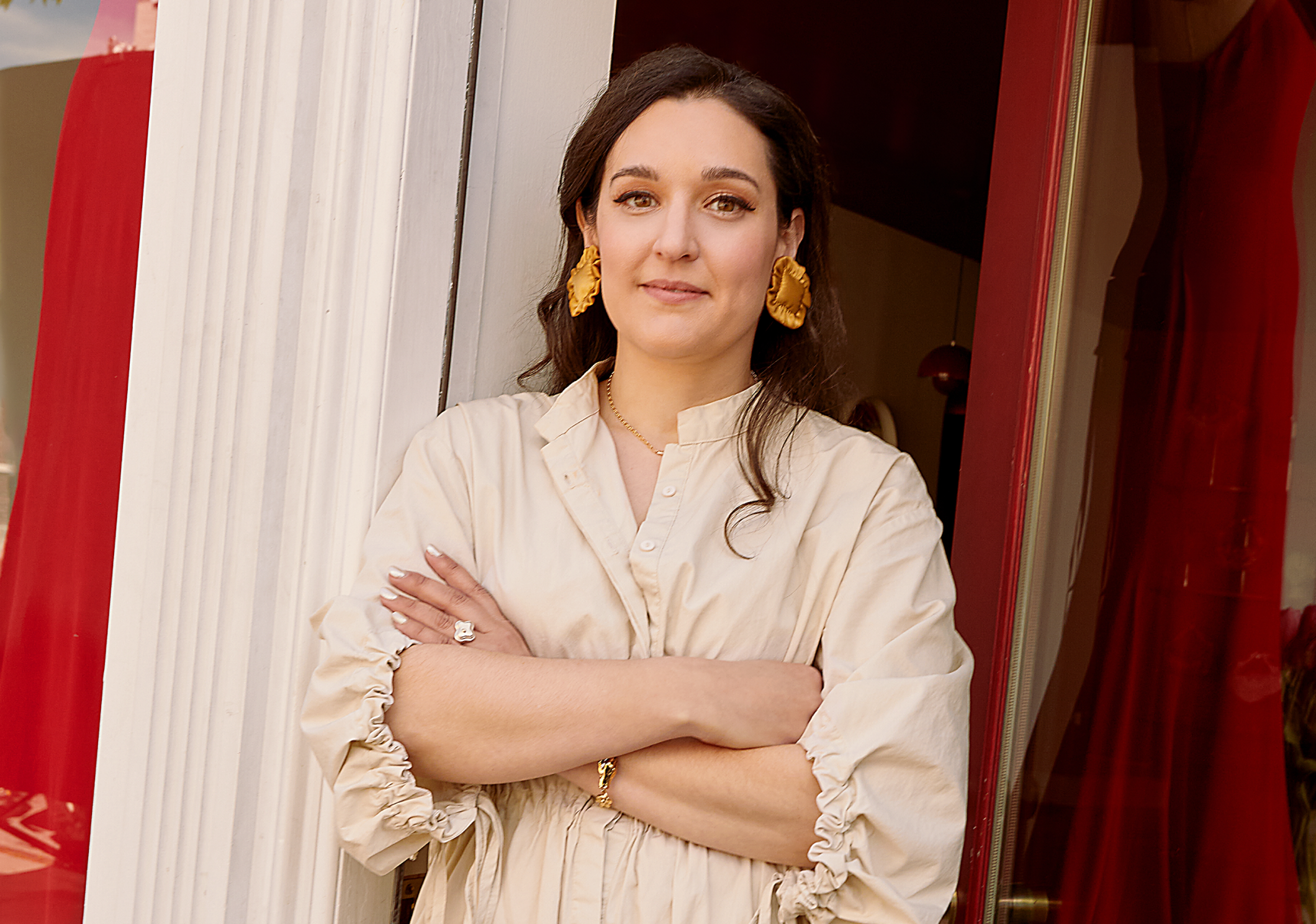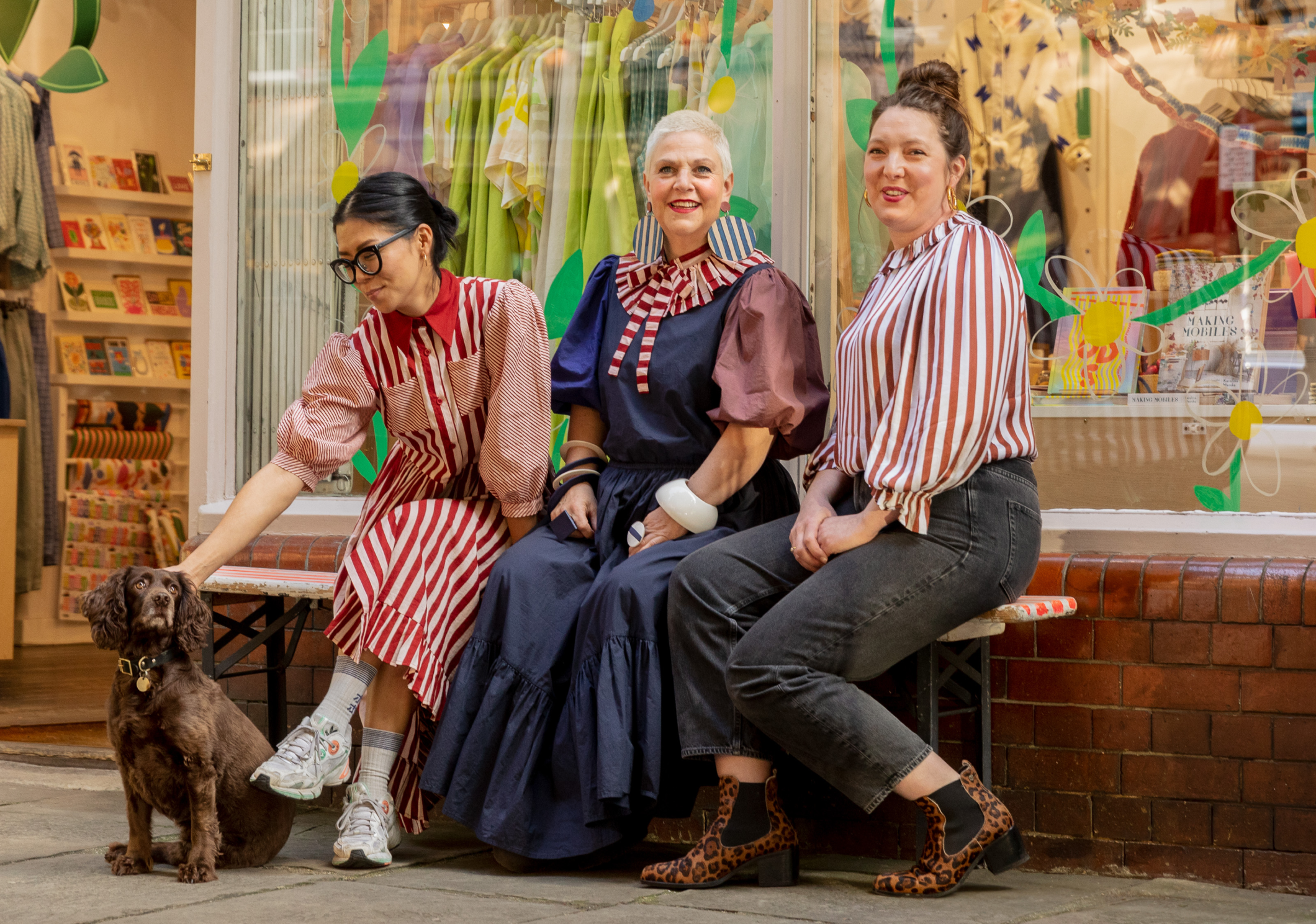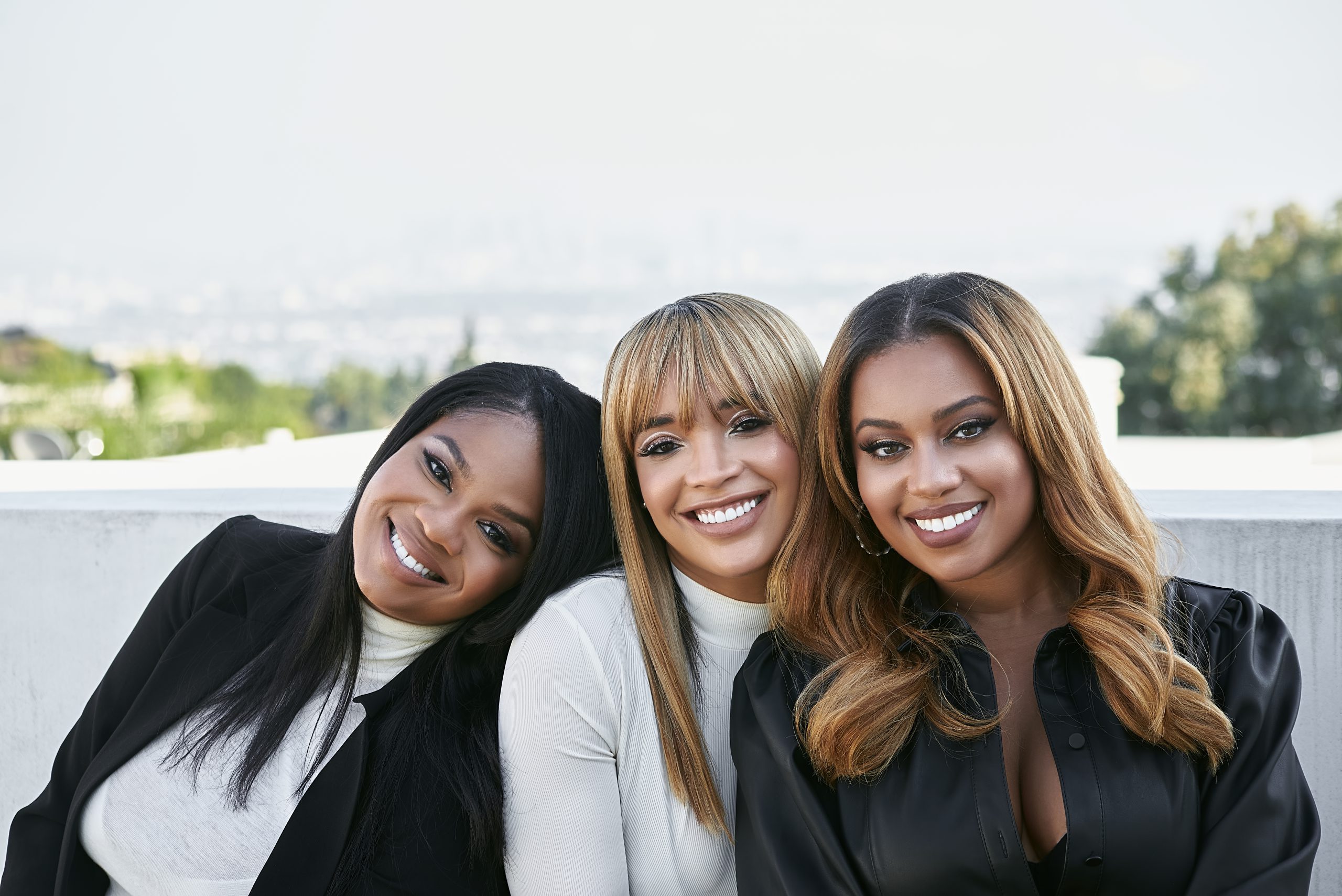
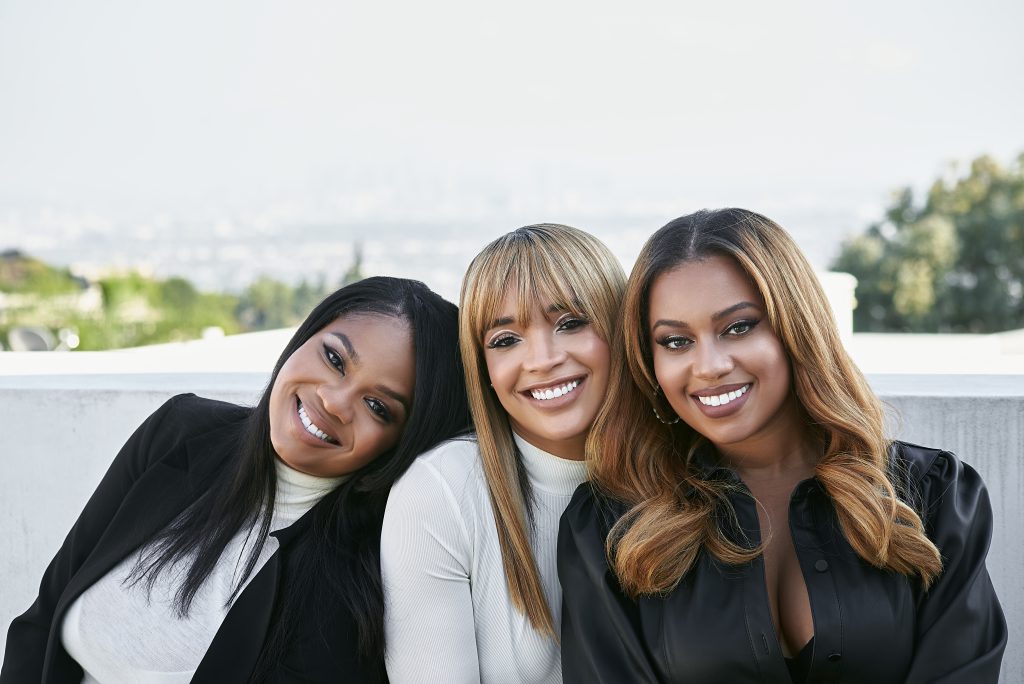
AMP Beauty LA is an online retailer that aims to revolutionize the shopping experience for Black women and women of color — demographics that remain underserved by beauty retailers, despite their billion-dollar spending power. Founders Angel, Montré, and Phyllicia’s 10-year friendship and shared experiences as Black women led them on a journey to build a premier beauty destination for women of color. Their mission is to merge beauty and technology to make shopping easy, convenient, and personalized for all textures and shades.
We at Faire are inspired by the vision and passion of the AMP Beauty LA team. We’re dedicated to supporting their goal of expanding access and visibility within retail for Black women and women of color. That’s why we’re partnering with AMP: to use our platform to create greater reach for Black-owned brands and more opportunities for Faire retailers to discover entrepreneurs of color.
Ahead of launching a collection of their brands next month, we caught up with the AMP team to learn more about their story.
Faire: How did you all meet? What are your backgrounds?
Angel Lenise: We met as college sorority sisters over 11 years ago at Clark Atlanta University, the best historically Black institution. Our organization, Alpha Kappa Alpha, helped us develop a strong relationship and a lifelong commitment to our shared values.
I’ve lived in New York for the past decade, but (pre-pandemic!) would travel to Los Angeles for work, where Montré and Phyllicia live and are from. During one of those visits, about two years ago, we met for dinner in downtown Los Angeles and I asked them if there was a beauty supply store nearby where I could pick up some edge control — a staple beauty product Black women use for our hair. They told me I’d have to drive 30 minutes away to find it. That sparked a conversation about how Black women source beauty products we need and love. There is no space that is built specifically for us, and by us, where we work, live, and commute. We said, let’s start our own.
We have three totally different career backgrounds, but our skills work well together. I work in digital and am currently the supervising video producer for ELLE magazine. Montré comes from a traditional retail management background, and oversees a multimillion dollar beauty business for Neiman Marcus. Phyllicia has a law degree and currently works at a major tech social media company.
Faire: What did it take to start working on your idea and getting things off the ground?
Phyllicia Phillips: We took a deeper look at what the problem was — digging into why it is so inconvenient to access beauty products for Black and Brown consumers. We sent a survey out to about 150 beta users to learn more about their concerns and challenges. We found that people were looking for a smarter way to shop for beauty products. Our target demographic, Black women, were quickly outgrowing the current format. From there, we used that data to curate the experience. We wanted it to be luxurious and user-friendly — basically a mix of beautifully-designed intuitive Instagrammable moments but in a digital retail space.
Angel: It was really affirming for us to see that it wasn’t just our own personal experiences; in fact, the problem was confirmed by the data we collected. Black women are the highest spenders of beauty products, yet we are regulated to a single aisle in most beauty stores. And those retailers — whether mass, or, even, local beauty supply stores that do cater to communities of color — aren’t owned by women and men who shop or look like us. We don’t have the same experience that other people get when going into a Sephora or an Ulta Beauty. We don’t see Black or Brown owners behind the counters at our local beauty supply stores.
Faire: How do you leverage technology in your business?
Phyllicia: When we started the business, I was working for a small legal tech company. I spent a lot of time with software engineers learning about things like artificial intelligence (AI) and augmented reality (AR). We decided to primarily focus on an e-commerce platform, and I thought we should look into how to use tech to make the shopping experience more efficient. We started looking into beauty tech to bring the shopping experience home. We dug into using concepts like a face scan that can address hyperpigmentation, which is common for Black women, and then suggest products to remedy that, and similar issues.
Montré Moore: The reality is that the more consumers try, the more they buy. We’ve done the research on this. Websites that have virtual try-on tools and are able to create customized beauty experiences have over twice the conversion rate and see a 100% increase in time spent on their sites.
Angel: We also know that beauty tech is being used across the industry for things like laser hair removal. But people with darker skin tones are often unable to receive those procedures because laser treatments don’t always register more melanated skin. Or, you have to find a professional who specialties in darker skin tones for certain treatments. To Phyllicia’s point about AI and AR, current virtual and makeup try-on tools default to women with lighter skin and straight hair. So the tech exists, but it isn’t made with our consumer, or people like us, in mind.
Montré: L’Oreal, Estee Lauder, and Ulta Beauty are the main players in the beauty tech field. Our goal is to reach their level.
Faire: What has been the biggest challenge or learning experience since you began?
Angel: As a startup, access to capital has been a huge challenge for us. In venture capital, only a small percentage of funding goes to companies helmed by women of color. It can be frustrating and makes you question whether your concept is viable. We realized that although the investors we pitch might not be our target customer, there is a need for AMP Beauty LA — and people believe in us. But we’ve got a lot more work to do.
Faire: Why is it important to you to partner with smaller independent brands?
Montré: These are brands that have been overlooked for years. We try to rally for them and be their cheerleaders — that’s where the great synergy of Faire and AMP Beauty LA comes into place. We want to bring more light and exposure to people that have been in the industry for years, who have been instrumental in pushing the agenda for amplifying Black beauty. We want to pay it forward, and help them succeed too. For some of these brands, the access you are providing to 100,000 retailers is a huge opportunity for their revenue stream.
Angel: There are so many amazing beauty brands owned by people by color, but as we are seeing with the pandemic, many of these small brands don’t have a chance to compete. They aren’t given shelf space in stores or online by larger retailers. The opportunity for product discovery isn’t quite there. We want to solve that issue from a business standpoint and help smaller brands reach a larger market and audience.
Faire: Tell me about the foundation you just announced.
Angel: Being supreme in service to all mankind is a tenant of our sorority, so we want to include a philanthropic aspect in any endeavor we do. Our namesake charity organization, The AMP Foundation, will launch next year and focus on partnering with shelters and organizations in the greater Los Angeles area to provide women and girls in need with beauty and personal hygiene products.
Faire: What is the most rewarding part of your job?
Phyllicia: For me, it’s speaking with the brand owners. It brightens my day — they have so much energy and excitement for their work, it becomes contagious. When you get on the phone with a founder who is super passionate about what they are building, it energizes you into pushing their product. That can just turn my day around when I’m focused on deadlines, supply chain, and VC meetings.
Montré: I have three younger sisters and we like to shop together. We want to share the same shopping experience, but we have different skin tones and different hair textures. For younger generations, I don’t want them to have to feel awkward going down the “ethnic aisle” or have any challenges or friction when it comes to shopping together with their friends or family.
Angel: We had a conversation with an advisor a week ago and they said all you need is one “yes.” We have had a few very important “yeses” that have kept us moving forward, and we have had conversations with brands where we have been their first “yes.” It’s great to be in a position where even though we are still growing, we can give that back.

